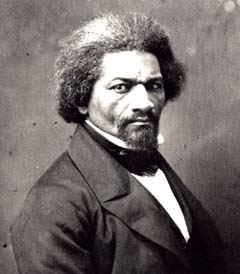In this lesson on personal narrative, T&W teaching artist Samantha LoCoco helps seventh-graders begin to articulate the values that are most important to them, and to realize how those values shape who they are as individuals.
Grade: 7
Genre: Personal Narrative
Download: Value Exploration and Personal Narrative
Common Core State Standards:
- ELA-LITERACY.W.7.3: Write narratives to develop real or imagined experiences or events using effective technique, relevant descriptive details, and well-structured event sequences.
Lesson Objectives:
- Define the five senses and sensory language.
- Identify the use of sensory language in sample writing.
- Define “identity” and describe what identity means to students.
- Discuss the purposes of personal narrative essays.
LESSON
Ritual (5 minutes):
One Word Check-in:
- Start with this low-risk warm-up so that students can learn more about one another and to encourage ownership over their definition of self. Have students stand in a circle if possible, and invite each student one at a time to state one word that describes how they are feeling in that moment.
- Teaching artist will model the exercise to begin.
Warm-up (15 minutes):
Name that sense:
- Begin with a brief discussion about the five senses and sensory language.
- Hang up an image of each of the five senses (smell, sight, touch, taste, hearing) at different points around the room.
- Read examples of writing that employs sensory language and ask students to stand by the image they think is the predominant sense used in the writing sample.
- Ask for volunteers to define why they chose that sense.
- Repeat until all five senses are established.
- Ask students: What did you learn about the senses/sensory language?
Main Activity (30 minutes):
Discussion:
- Introduce and discuss what a personal narrative essay is and why it’s important on a personal level and how it can support students when applying to college.
- What is an identity? Who here feels like they have a strong personal identity? What does it mean to have a strong identity?
- Could we say that forming an identity is difficult? How could this be true?
- Read together the sample essay, “The Beard,” and discuss the essay. Ask students: Where does William use sensory language? What is William’s central theme? What happens in William’s story?
- What are some of life’s important moments? (birthdays, religious events, holidays, etc.) Discuss why each is important to us and why we remember those times.
- Explain that we are not writing an autobiography, but instead we are going to focus on developing a personal narrative, a story that focuses on a snapshot of our lives. It is not a factual retelling or a timeline of events. Ensure this distinction is clear before moving on.
Writing:
- Explain and reinforce that a value is a characteristic that is important to leading a fulfilling life.
- Brainstorm a list of words students think of in response to values.
- Have students look at the Values Activity Sheet and define each value in a few words. Then, ask them to put a star next to the five values that are the most important to them.
- Once students complete the sheet, open up to the group for discussion. What five values did you select and why?
Review and Closing Ritual (10 minutes):
- Ask students to share their reflections by answering one or all of the following questions:
- Head: What is one thing you learned today?
- Heart: What emotions did you feel after participating in these activities?
- Feet: What is one thing that you’re walking away with? What will you do with it?
- Close with the call-and-repeat: “I have a voice / my voice is powerful / my voice can change the world.”
Materials:
- Five senses images
- “The Beard,” sample personal essay
- Chart paper
- Markers, pens/pencils, paper
- Values Activity Sheet



